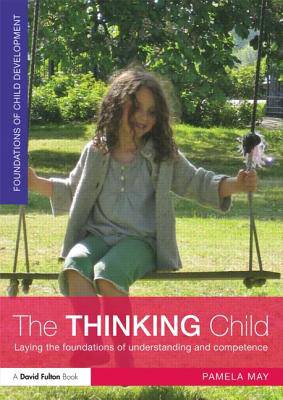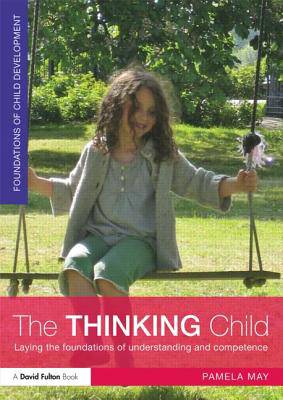
- Retrait gratuit dans votre magasin Club
- 7.000.000 titres dans notre catalogue
- Payer en toute sécurité
- Toujours un magasin près de chez vous
- Retrait gratuit dans votre magasin Club
- 7.000.0000 titres dans notre catalogue
- Payer en toute sécurité
- Toujours un magasin près de chez vous
Description
What characteristics do children need to become motivated to learn? How do children's experiences and relationships affect their cognitive development? How do you provide learning experiences that meet the developmental needs of every child in your care?
The Thinking Child thoughtfully discusses the key principles of children's cognitive and intellectual development alongside descriptions of everyday practice. It clearly explains the cognitive strategies that children use to learn new knowledge, the development of cognitive milestones such as symbolism, memories and the imagination, metacognition and creativity along with research into how the brain processes information.
Throughout the book, the author considers the key characteristics of effective learning and shows how play is one of the primary mechanisms that children use to access new knowledge and to consolidate their emerging ideas and concepts. These characteristics are then applied to integral aspects of early years practice to show how pracitioners can:
- motivate children to learn new knowledge about themselves and the world around them;
- help children to develop their own ideas creatively and use this knowledge as a base to learn new things;
- reflect on their own teaching methods to encourage children's engagement, motivation and creativity through effective observation and planning;
- engage with parents and carers to help support children's learning at home whilst maintaining the values of the family;
- celebrate the uniqueness of each child and provide learning experiences that are appropriate for individuals with particular learning needs, be they physical, emotional or cognitive to ensure that every child has an equal opportunity to succeed.
Emphasising the importance of understanding the theory that underpins children's cognitive development, this accessible text shows practitioners how they can use this knowledge to provide learning opportunities that nourish children's thinking and creative skills.
Spécifications
Parties prenantes
- Auteur(s) :
- Editeur:
Contenu
- Nombre de pages :
- 112
- Langue:
- Anglais
- Collection :
Caractéristiques
- EAN:
- 9780415521918
- Date de parution :
- 02-04-13
- Format:
- Livre broché
- Format numérique:
- Trade paperback (VS)
- Dimensions :
- 173 mm x 239 mm
- Poids :
- 226 g

Les avis
Nous publions uniquement les avis qui respectent les conditions requises. Consultez nos conditions pour les avis.






